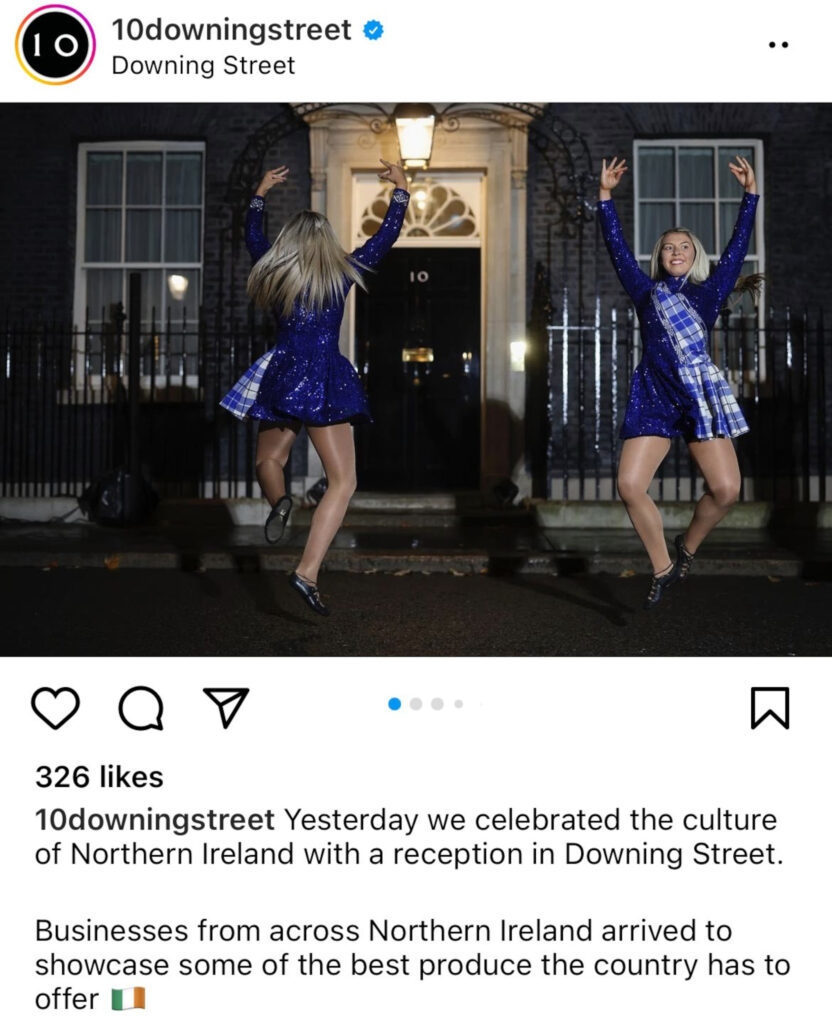DOWNING Street has been slammed after posting to social media to celebrate Northern Ireland’s culture – but with the Republic of Ireland flag emoji.
The official account representing Prime Minister Rishi Sunak took to Instagram earlier today with a post detailing the celebration of all things Northern Irish at Downing Street last night.
The post showcased several photos of the reception held by Rishi Sunak’s Conservative government to celebrate Northern Irish businesses.

However, the post came with an almighty gaffe as the caption initially included the emoji for the Republic of Ireland’s tricolour flag.
The pictures show Sunak and his wife, Akshata Murty, meeting and greeting businesses from all over Northern Ireland and sampling their produce whilst enjoying some festivities.
Irish dancers can also be seen, clad in blue and white garb, showing off their talents in front of the official residence of the PM.
The post’s caption read: “Yesterday we celebrated the culture of Northern Ireland with a reception in Downing Street.
“Businesses from across Northern Ireland arrived to showcase some of the best produce the country has to offer.”
Whilst it has since been edited, the original caption of the post included the orange, white and green Republic of Ireland flag emoji at the end of the caption.
The post has received over 1,400 likes but dozens of comments from users left in disbelief at the slip-up from the government account.
One user wrote: “The social media intern needs firing.”
Another commented: “Going to cause another war with that flag next to Northern Ireland.”
A third said: “Literally the government of the country, not knowing the flag of the country. You couldn’t make it up.”
Another replied: “Imagine working [at 10 Downing Street] and not knowing the flag of your own country. Just wow.”
The division between the Republic of Ireland and Northern Ireland stems from historical and political factors.
In 1921, the Anglo-Irish treaty led to the creation of the Irish Free State – now known as the Republic of Ireland – while Northern Ireland remained part of the United Kingdom.
However, despite huge differences including currency, dominant religions and the Republic of Ireland remaining a member of the European Union, both countries share an open border.